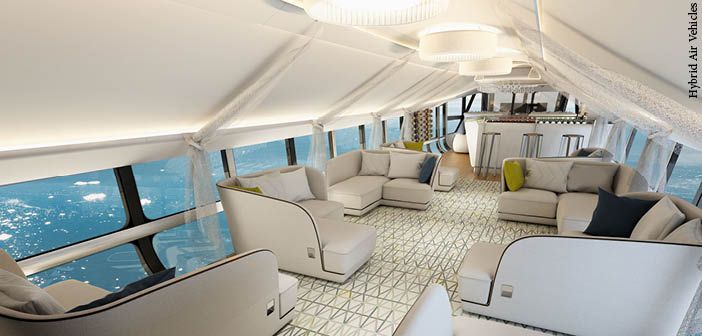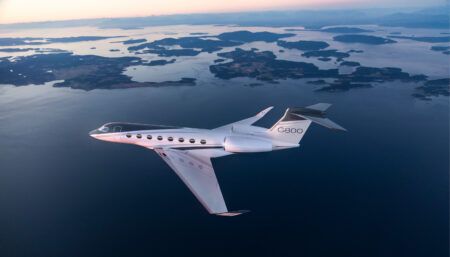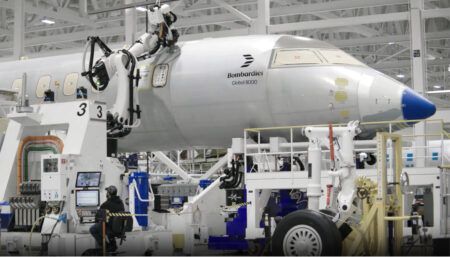Hybrid Air Vehicles (HAV), developer of the Airlander 10 airship, has secured an Innovate UK COVID-19 Continuity Grant to safeguard its Project E-HAV1 programme through the COVID-19 pandemic.
Launched in April 2019, together with Collins Aerospace and University of Nottingham, Project E-HAV1, involves the development of a full-size prototype 500kW electric propulsor for ground testing. This technology will then replace Airlander’s fuel-burning forward engines as the first step to an all-electric Airlander by 2030.

The development of this propulsor forms a key part in the electrification journey for the Airlander 10. HAV says that with four fuel-burning engines, Airlander 10 produces 75% fewer emissions than other aircraft in comparable roles. Replacing the two front engines with electric motors will further reduce emissions – the hybrid-electric Airlander 10 will produce 90% fewer emissions from 2025.
Project E-HAV1 addresses key goals of the UK Aerospace Technology Strategy: strengthening the UK’s aerospace capabilities, positioning the UK for developing future generations of civil aircraft, and advancing a new generation of efficient propulsion technologies.
“The need to reduce aviation’s impact on the environment has never been clearer,” said CEO Tom Grundy. “E-HAV1 is central to our vision of making zero-emissions aviation at scale possible, quickly. We’re delighted to continue with that important work with this additional support to the programme from Innovate UK.”






